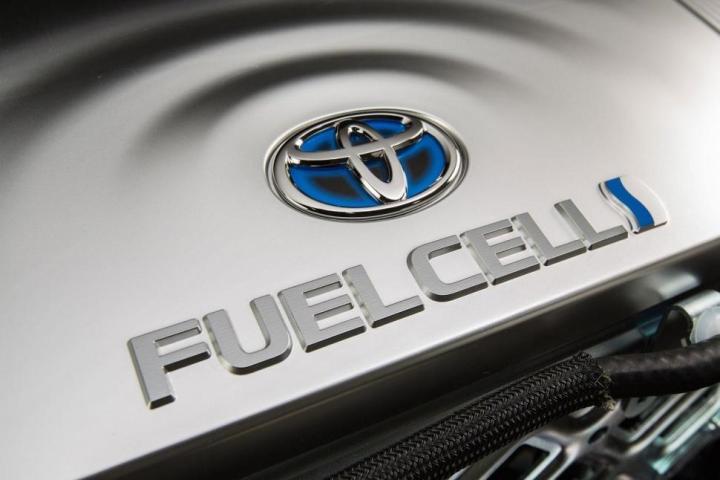
The move effectively gave other manufacturers free, unrestricted access to Tesla’s technology, and we wondered if other automakers would follow suit.
Now, one has.
In a move that “invites the industry to the hydrogen future,” Toyota has made approximately 5,680 global fuel cell patents available for royalty-free use. 3,350 patents are associated with fuel cell system software, 1,970 with fuel cell stacks, 290 with high-pressure hydrogen tanks, and 70 with hydrogen production and supply. The news was announced today at the 2015 Consumer Electronics Show.
“At Toyota, we believe that when good ideas are shared, great things can happen,” said Bob Carter, Senior VP of Automotive Operations at Toyota Motor Sales. “The first generation hydrogen fuel cell vehicles, launched between 2015 and 2020, will be critical, requiring a concerted effort and unconventional collaboration between automakers, government regulators, academia and energy providers.”
This isn’t the first time Toyota has reached across the proverbial aisle to other brands. The Japanese automaker has recently collaborated with BMW to build a new sports car, and Carter believes these types of moves benefit the industry as a whole.
“By eliminating traditional corporate boundaries, we can speed the development of new technologies and move into the future of mobility more quickly, effectively and economically,” he explained.
It’s important to note that the patents will only be available royalty-free to automakers that produce and sell FCVs, FCV parts suppliers, industrial equipment designers, hydrogen-powered bus manufacturers, and energy companies that wish to operate fueling stations. This agreement will last until the end of the initial market introduction period, which runs through 2020.
Toyota said those outside the transportation industry who wish to use hydrogen fuel cell technology will be evaluated on a case-by-case basis. All companies interested in the patents must negotiate a contract with Toyota.
Editors' Recommendations
- Hyundai’s hydrogen fuel cell truck makes hauling freight green and glamorous
- Hydrogen was the fuel of tomorrow, so what happened?
- Toyota uses hydrogen fuel cells to power one of its Japanese factories
- A self-driving Toyota will escort the 2020 Olympic flame in Tokyo
- Hyundai Nexo is the first fuel-cell vehicle crash-tested by the IIHS


